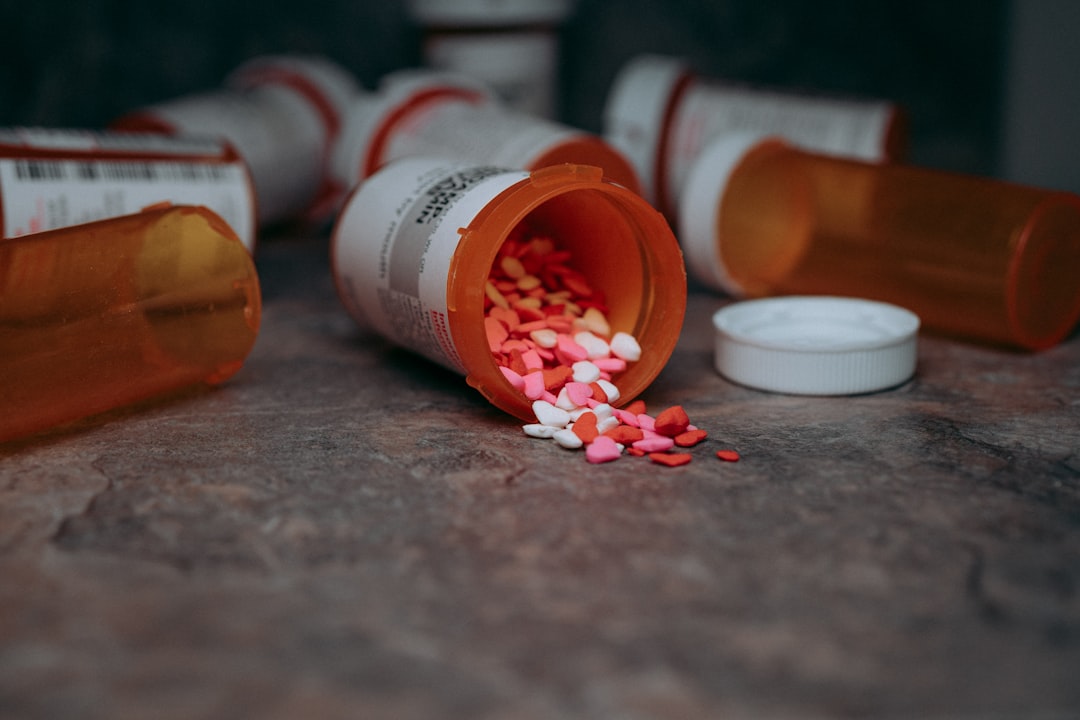- The Daily Tonic
- Posts
- Deep Dive: 💊 shortage.
Deep Dive: 💊 shortage.
Plus: Recipes to kick off a new week!
“It is health that is real wealth and not pieces of gold and silver.” - Mahatma Gandhi
Monday. Today marks 22 years since the events of 9/11 — a day that remains deeply ingrained in the hearts of every American. As we start our week, let’s make sure we take a moment to honor the heroes and remember all those we lost.
Moving on to the newsletter, it might surprise you that despite Big Pharma's vast resources and influence, we’re facing significant drug shortages in this country. You’d think they’d have this figured out by now, but here we are. Let’s dive in.
Together with Inside Hotels
Hotels We Love: Lyle DC
Despite its historic importance, not everything in DC is outdated—take Lyle DC, for example.
A remarkably contemporary place to stay with gorgeous design inspired by its former life as an Art Deco apartment building, this isn’t your average hotel. From the bathroom amenities produced by the fragrance masters at DS & Durga, to Nespresso machines in each room, to the jaw-dropping burlwood headboards, every detail here has been considered to create an environment with all of the comforts of a really trendy home. The bottomless brunch on the weekend is a can’t-miss.

Deep Dive: Rising Drug Shortages in the U.S.
If you haven’t been closely following the state of our healthcare system like we do at Daily Tonic (we’re health nerds), you might be unaware of the rising drug shortages in the U.S. And this issue isn’t just a logistical problem; it’s affecting patient care, putting financial strain on healthcare systems, and increasing workloads for providers.
When there’s a drug shortage, it can mean that a doctor can’t give their top-choice medication to a patient. Imagine needing a specific medicine but being told it’s unavailable. Well, that is precisely what is happening, and more often than you’d think. In a past survey, almost three out of four providers said they couldn’t prescribe their preferred drug due to shortages. As a result, nearly half of these providers felt their patients had to settle for a less effective treatment. This is troubling, to say the least.
It’s not just about the choice of medicine, either. Patients might have to wait longer for treatment because of these shortages. In fact, 75% of providers in the same survey said that at one time or another, their patients had to face treatment delays because of drug shortages.
Safety concerns also become a bigger problem when there is not enough of a specific medicine. Mistakes can happen. A different survey suggested that 38% of U.S. hospitals reported medication errors directly linked to these shortages during a six-month period. Most of these errors resulted in giving the wrong dose or concentration, which is obviously no bueno.
And what about the impact on health systems and the people working in them?
Well, drug shortages create a mountain of extra work. The time spent searching for alternative medicines and updating patient records with new drug information is pretty significant. According to some research, health systems spend over 8.6 million hours of added labor every year just dealing with these shortages. That’s a lot of overtime.
And this added labor isn’t free. It’s estimated that the labor costs linked to these shortages amount to approximately $359 million each year — and some experts still suggest that this figure might be on the low side. Yikes.
The actual cost is likely much higher when you consider the expenses of alternative treatments, buying from different channels, mistakes due to medication errors, and delayed or canceled medical procedures. This is concerning, given how much we already spend on mediocre healthcare in this country.
The way shortages impact hospitals can vary. Bigger health systems might have the advantage of having “buffer inventories” — basically, a stash of medicines that can last several months. They might even have dedicated teams or full-time pharmacists whose main job is managing these shortages.
But not all hospital systems are this lucky. Smaller, rural hospitals might not have the same resources, leaving these providers struggling to cope when medicines run low.
The key takeaway? In a time when our healthcare workers are already stretched thin and facing burnout, these shortages add another layer of stress. It’s just “one more thing for them to have to worry about,” and that is not what our waning healthcare system needs right now.
The rising drug shortages in the U.S. should be a big concern for all of us. It’s not just about numbers and finances; it’s about real people needing care, real doctors trying to provide that care, and a system grappling to ensure everyone gets what they need.
So what’s the best thing you can do? You can do everything in your power to keep yourself and your loved ones outside the hospital system. Prioritize quality sleep, eat primarily unprocessed whole foods, exercise regularly, and hydrate so you can optimize your health and minimize the chances of ever needing a drug that may or may not be in short supply.
Tonic Shots
1. Pizza, Light On The Carbs
Cauliflower crust pizzas can be hit or miss, but this recipe nails it. No — pizza isn’t necessary the healthiest. But if you are going to do it, this is the way to avoid all the carbs!
2. Chicken Salad… With Some Kick!

Having some chicken salad on deck is a great way to always have access to an easy, high-protein option. And this recipe adds in a little kick for those that want some more spice in their lives.
3. I LOVE MUFFINS

Who doesn’t? This recipe is a great way to use those bananas you have sitting around and it packs a protein punch!
Keep Reading
Love The Daily Tonic? Here’s another newsletter you may love too:
|
How was today's newsletter? |



